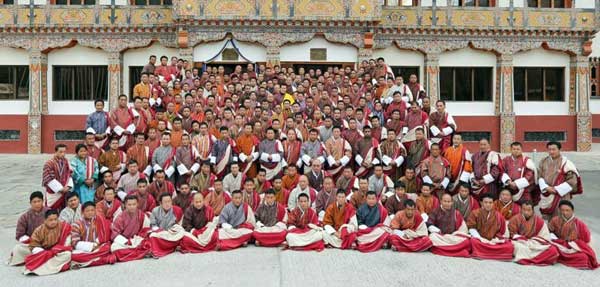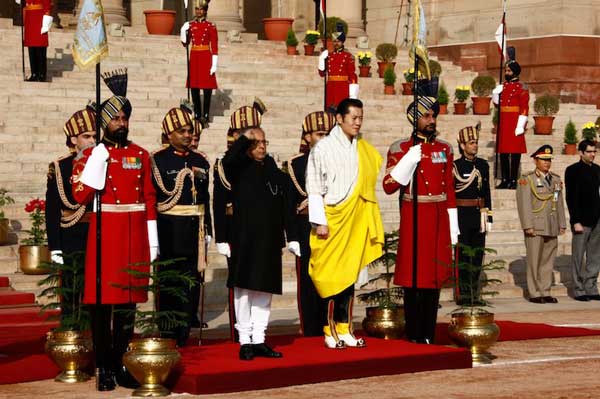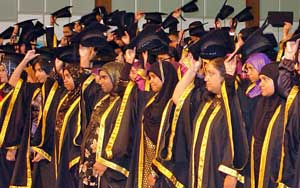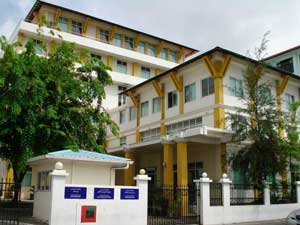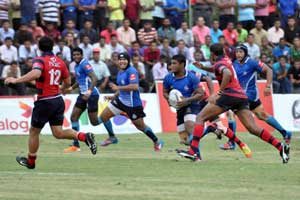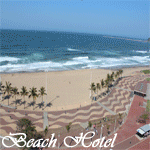
Rugby is a growing team sport in Sri Lanka
By Srimal Fernando Global Editor
Rugby
is a popular and growing team sport played in Sri Lanka. The game
enjoys widespread popularity especially in the capital city Colombo and
in Kandy . The last decade saw the regional clubs somewhat developed
and closing the gap with urban rugby football clubs in Sri Lanka. This
was due to the coaching techniques and improvised facilities for
talented players.
In
recent years Sri Lanka has proven themselves capable of scaring and
more than occasionally defeating traditional Asian rugby giants from
Malaysia in the Hong Kong Shanhai Banking Cooperation (HSBC) Sevens
Asian Series final in Borneo in September 2012.
Sri
Lanka is scheduled to compete in the Asian Five Nations rugby
tournament against Thailand, Chinese Taipei and Kazakhstan beginning of
April this year. Current captain Yoshitha Rajapaksa and his deputy Fazil
Marija have been picked to lead the Sri Lanka rugby team at the Asian
Five Nations rugby tournament.
Sri
Lankan rugby has the potential to upset the best in Asia with a team
rich with talented players. In order to raise the standards of rugby and
make the Sri Lanka rugby team more competitive Du Plessis was appointed
as National coach by the Sri Lanka Rugby Football Union( SLRFU). Du
Plessis is a former National Coaching coordinator for the South African
Rugby Union and Technical Director for the 2003 World Cup.
Sports
Minister Mahinananda Aluthgamage and Parliamentarian Namal Rajapaksa a
ruby football sportsman played an influential role in guiding the Sri
Lanka rugby team in recent years.
While
rugby in Sri Lanka is still largely at an amateur level, there are many
professional players. Early forms of rugby had been played in Sri
Lanka since the middle of the 19th century. The game was introduced to
the island nation by the British .
Colombo
Football club which is now the oldest rugby club in the country, was
founded on 28 June 1879. The early 20th century saw the emergence of a
more formal structure, with Ceylon Rugby Football Union as one of the
oldest governing rugby union bodies in the world being formed in 1908.
Later the Ceylon Rugby Football Union became known as the Sri Lanka
Rugby Football Union (SLRFU) on 12 September 1907. The Ceylon team
played their first international rugby match against the professional
All Blacks or New Zealand rugby league team. 1995 saw a period of skills
development for rugby in Sri Lanka . In the same year the Island nation
from the Indian Sub continent entered into a World Cup qualifying
tournament in Group A along with Malaysia,Taiwan and Japan.
Havelock’s
Sports Club ,CR & FC and Old Trinitians Sports Club, Kandy Sports
Club and Sri Lanka Navy are some of the well known clubs that dominated
at domestic level competitions for much of its history. Away from
Colombo in the highlands the Central Province Rugby Football Union
(CPRFU) is affiliated to Kandy Sports Club, Old Trinitians Sports Club,
Nuwara Eliya Rugby Football Club, Matale RFC and some other clubs from
the provinces that play competitive rugby matches in the domestic
competitions.
The
Milo -Presidents Trophy Schools Knockout Rugby Championship and the
Clifford Cup Rugby Championship are tournaments originally intended to
help build depth at School and in club level rugby and develop new
players for the Sri Lankan national team. St Thomas, Trinity ,Royal
,Isipathana ,St .Peter’s ,St Anthony’s , Wesley, and Trinity Colleges
are some of the well known schools that competed and won many matches
in the thrilling encounters at Schools Knockout Rugby Championships
Source : ( http://www.thediplomaticsociety.co.za/index.php?option=com_content&view=article&id=562:rugby-is-a-growing-team-sport-in-sri-lanka&catid=60:content )

